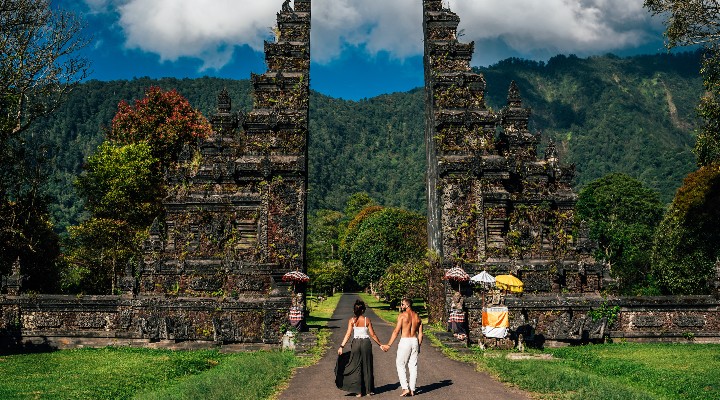Indonesia has reopened Bali to the world after nearly two years of strict border closures due to the Covid-19 pandemic. While the popular holiday destination officially reopened to travellers from New Zealand, China, Japan and a small number of other countries last October, there were no direct flights to the island, and most people were still barred from visiting, including Australians, who make up the biggest share of Bali’s international tourists each year. The move comes as oth
as other countries in Southeast Asia – Thailand and the Philippines – begin to reopen their borders in an effort to boost local businesses, many of which are heavily reliant on tourism and have suffered enormously under the international travel bans.
Bangkok-based retail expert Michael Baker estimates that retail businesses and eateries in just three cities in Thailand – Bangkok, Phuket and Pattaya – lost more than US$30 billion in international tourism sales last year.
“The knock-on effect on their local economies has been profound,” he wrote in a recent article for Inside Retail.
“Whole neighbourhoods in these cities have been turned into near ghettoes after two years of border crossing restrictions, closure of businesses, strict and constantly changing rules for businesses that remain open, and now a shortage of labour to staff them.”
Bali-based chef and restaurateur Dean Keddell has experienced the impact first-hand. He was forced to lay off over half his staff at Ginger Moon Canteen and Jackson’s Lily, two of the island’s most popular restaurants, due to the lack of tourism.
“This pandemic has reaped havoc amongst families and communities, as well as costing the economy billions of dollars,” Keddell said last year in a press release for the launch of his 400-page coffee table cookbook, Our Bali Your Bali, which aimed to raise money for local charities.
5-day quarantine a hurdle
But while many Balinese retailers will be hoping the border reopening will lead to an influx of international tourists, travel expert and CEO of Luxury Escapes Adam Schwab isn’t convinced. The main reason is that fully vaccinated visitors still have to quarantine for five days upon arrival.
“Until quarantine time is down to well less than one day, it’s unlikely many tourists will be willing to travel to Bali, despite the huge levels of latent demand,” he told Inside Retail.
Schwab highlighted the importance of tourism to the local economy, noting that only 45 international tourists visited Bali last year, down from 6.2 million in 2019.
“The trade-offs between ‘keeping people safe’ from Covid and the very significant interventions have been frustrating in developed countries like Australia, but for places like Bali, it has literally been devastating, plunging hundreds of thousands of people into poverty,” he said.
“While reopening will allow Australians to enjoy a nice holiday, the stakes are much, much higher for local Indonesians.”
Still, Schwab is optimistic that 2022 will bring a return in demand for travel.
“We’ve already seen a positive rebound during January and while we’re still trading below the levels of 2019, there’s huge pent up demand and lots of people holding billions of dollars in credits who are desperate to have a holiday for the first time in more than two years,” he said.
“While the sector won’t snap back overnight, we expect strong growth throughout the first half of the year and returning to pre-Covid booking levels by mid-year.”







